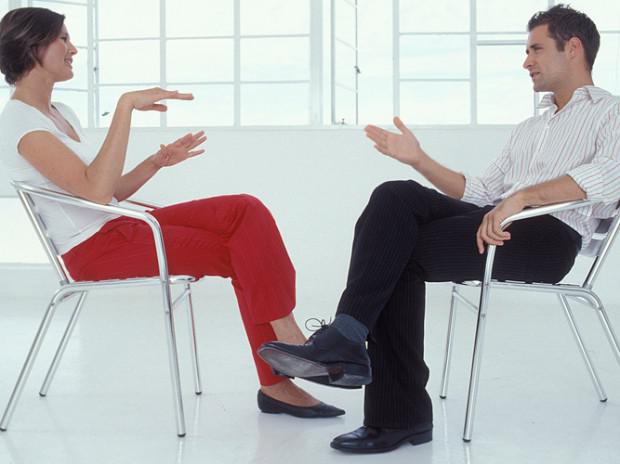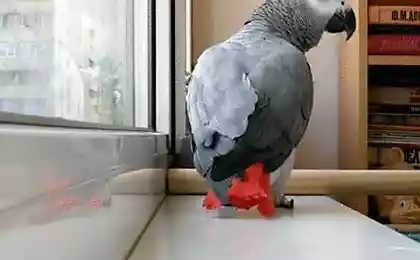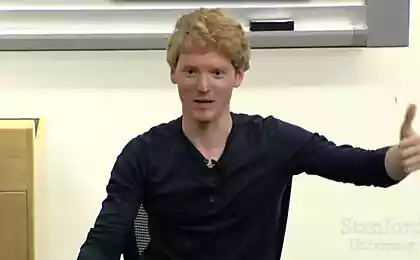How to train your mind to think critically and form your own opinion

Critical thinking - the ability to absorb important information and use it to form their own judgments or opinions. We emphasize: it is your opinion, not the same as that of everyone around. This ability is not always and not all will appear by itself. Fortunately, it can be learned through training.
1. Teach yourself to pay attention to the necessary details < br />
It is an important step in the development of critical thinking - to understand that the details matter. Every day we receive so much information and hear as many different opinions, it is easy to get lost in the details. So, we have to accustom themselves to distinguish the significant from the insignificant details.
Start with the news. If something seems strange - it is the first warning sign. With him, you can start searching for other gaps in the argument. There are several ways to find them:
- Think about who benefits from making such statements. em> When you read news or articles experts think for sure who will benefit from the statements made. There is a good chance that the person who comes from a kind of opinion that some benefits from it. Not always the matter of self-interest - the motivation just makes the opinion more justified. But a good idea to think about who benefits from such ideas.
- Check the source of the information. em> The Internet sources are not immediately visible, so if you see a controversial statement, keep track of where it came from, who suggested it first. And only then form their own attitude.
- Track "obvious". em> The usual technique in debate, reviews and essays, even - to put forward a lot of seemingly truthful and credible allegations, and then among them "accidentally" add one more, which seemed to be a matter of the foregoing. As if. Such illogical assertion is easy to miss, because you have already started to disagree with the speaker / writer, he'll almost convinced. Hypertrophied example: "So now we know that the sky is blue, grass green, white clouds, and Apple makes the best computers».
2. Always ask voprosy
The ability to pay attention to details - only the first part of the exercise of critical thinking. This in itself is useless, we still know what more to ask questions. Critical thinking and the right questions are interrelated.
Writer and psychologist Maria Konnikova offers several ways to learn how to ask questions on the example of Sherlock Holmes:

"After he defines a goal, he observes and collects data. And still asks, okay, and I will answer this question? And again, in this conversation, in this man, in this situation, it allows me to collect the data, which I can then use to verify my hypothesis is true or not?
Then Holmes does the same thing probably makes any great scientist. He takes a step back and re-looking at the data, distributes them, considering various opportunities to be creative, finally. Everything then to see, do not miss you something. The mind is still open? I conceive an open mind? I still know what's going on? Or the data - a reason to come up with new ideas? New Approaches? Just think about those things, is not taken into account before me? »
blockquote> Writer Scott Berkan has shared its own set of questions for critical thinking:

"What is a counter? Anyone who is seriously studying the issue, seen enough evidence to compare them with the argument put forward, to look at the problem from another angle, and - wonder. There are some useful questions: who, except you share this view? What are the key problems and what you need to address them? What needs to change to your opinion was the opposite? »
blockquote> Of course, this is similar to the Socratic method: a number of questions will help you understand what you think about the quality of the argument or opinion. Regardless of the approach, the ultimate goal - to learn how to think critically and analyze everything. Always ask yourself why the item, thought or argument are important and how they fit with what you already know. When you ask questions, you train your brain to find the connection between ideas and opinions. And critical of the additional information that you're bound to encounter.
3. Follow-phrases usileniyami
He is learning to think critically not just the brain. This also applies to the ears: you should notice small and imperceptible words and phrases that you need to be a signal of alarm. Yes, it is impossible to pay attention to everything at once, but there are a few phrases to help the weak arguments sound significantly. This phrase-gain, and everything that will be discussed after them, should think carefully:
- I want to say; em>
- I'm just saying that; em>
- If you absolutely honest ; em>
- I just want you to know; em>
- I do not say that; em> li >
- I hear what you're saying; em>
- Do not get me wrong; em>
- Let's be honest ; em>
- As far as I know; em>
- I think; em>
- < em> course. em>
4. Identify own prejudices and fight with nimi
All we treat the information biased, we realize it or not. But because of critical thinking can be learned beyond their prejudices.
The basic idea expressed great writer Terry Pratchett, in his book "The Truth»:

"Be careful. People like to listen to what they already know. And when you're talking about something new, they are uncomfortable. New ideas ... Well, new ideas - this is not what they expect. They are, for example, want to know that dog bites man. Dogs usually do. But they do not want to know what a man bites a dog, because in the world there should be no such thing. In general, people think that they want the new, but in fact they need the old. Not news, but ordinary - they will confirm to people that truly exactly what they already know ».
blockquote> to think critically - means to fight with their prejudices as often as possible. It's hard, but if you throughout the day from time to time to think about the ideas which fundamentally do not agree, you train your brain to do it more often.
5. Practice whenever you can only
If you want to learn something, you need to practice every day. This applies to all, including critical thinking. Of course, a lot you can do in your own head, but there are other exercises.
One of the easiest ways to learn - is to keep a diary. It may be a record of daily observations or notebook with ideas, but the point is to write to every day.

Once accustomed, start a blog on the Internet - is a great way to find out the opinions of other people and challenge yourself, because not everyone will agree with you. It is also an excellent practice - discussions with friends.
It's not all that can be said about critical thinking. The more you develop this skill, the better you will get. At first, you have to constantly keep track of what direction to take your thoughts, but as a result of your brain will learn to automatically find the best arguments to invent interesting and useful ideas and creative approach to problem solving.
via factroom.ru






























